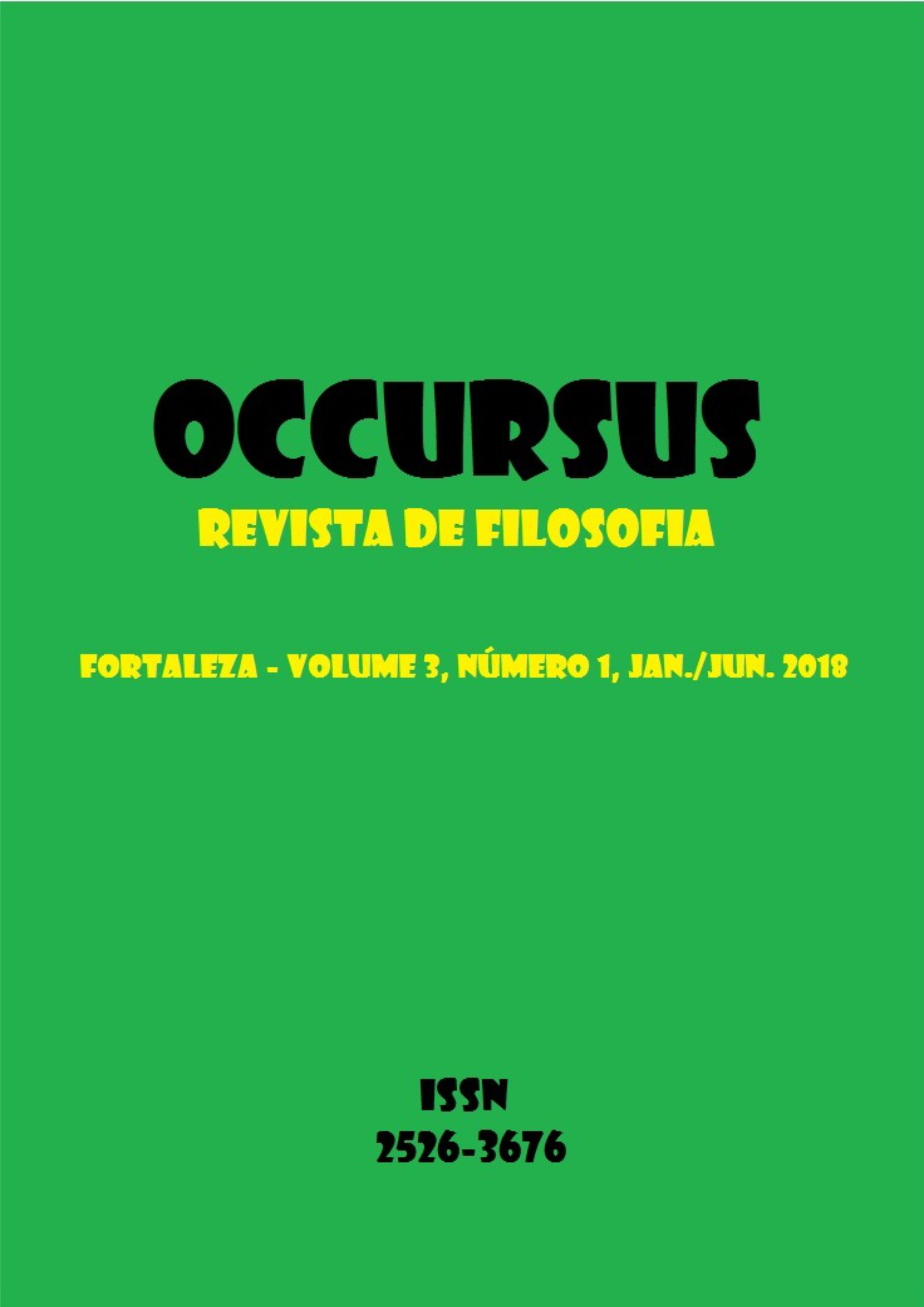References on the official documents of the MEC for the discipline of philosophy in middle school: an interpretation by the kantian theoretical varnish
Keywords:
Philosophy. LDB 9394/96. Kant. Criticity. High school.Abstract
The present article deals with Philosophy in High School by the Kantian varnish. The MEC Official Documents, especially LDB 9394/96 and the National Curriculum Guidelines – OCNs (2006), were searched as vectors for propagating to human formation in the dialectic relationship between teacher and student. We point out that when there is criticality and emancipation, - these through the bonds of citizenship and work, – there will be the prevalence of subjects who seek their intellectual autonomy. The relationship with Kant's philosophy and High School Education makes us realize that the epistemological construction of those involved with the discipline of Philosophy requires an imminence of non-tutelage, of critical freedom, of an educational construction that makes students and teachers can retrieve their identities in the school environment in a citizen's way. The removal of these elements can produce beings that distance themselves from the pedagogical profile in which the dynamism and expressiveness of intellectual authorship in the classroom prevails, as well as the autonomy necessary for the students, especially for an emancipatory proposal that requests them skills and abilities to philosophize. This article is under construction or in progress, as we will have a document of the MEC that is the National Curricular Common Base (BNCC), – as object of study and research of our academic investigations. It is observed that this document is finalized for Fundamental Education and, still, nonexistent to the MS (2018). By publishing it, we will examine the content of the document and whether its theoretical-practical proposals foster an unguarded spirit for the student, or reduce to a single curriculum of tutelage: our fear.
References
BAZZANELLA, S. L. O que é a Filosofia? Disponível em << file:///C:/Users/Yvisson/Downloads/O%20que%20%C3%A9%20a%20filosofia..pdf>> [s.d]. Acesso em Janeiro de 2018.
BRASIL. Lei de Diretrizes e Bases da Educação de 1996. Disponível em <http://www.planalto.gov.br/ccivil_03/leis/L9394.htm> Acesso em Novembro de 2017.
BRASIL. Orientações curriculares nacionais para o Ensino Médio – Ciências Humanas e suas tecnologias. Brasília: Ministério da Educação, Secretaria de Educação Básica, 2006. Volume 3.
BRASIL. Base Nacional Comum Curricular. Disponível em << http://basenacionalcomum.mec.gov.br/>> (2018) Acesso em Fevereiro de 2018.
KANT, I. Crítica da Razão Pura. Martin Claret, 2009.
KANT, I. Resposta à pergunta: o que é o esclarecimento? In: _____. Textos seletos. Petrópolis: Vozes, 1974.
LAROUSSE. Dicionário de Língua Portuguesa. São Paulo: Nova Cultural LTDA, 1992.
PERRENOUD, P. Construir as competências desde a escola. Porto Alegre: Artmed, 1999.
SANTOS, Y. G dos. Notas sobre Filosofia, Educação e Ensinabilidade: uma crítica teórica de conceitos deleuziano e kantiano pela ótica epistêmica de Silvio Gallo. In.: Revista Digital de Ensino de Filosofia. Santa Maria. Volume 2, n° 01, jan/jun de 2016. Disponível em << https://periodicos.ufsm.br/refilo/article/view/21082/13996>> Acesso em Janeiro de 2018.
SODRÉ, M. Prefácio. In.: IACONO, A. M. Caminhos de saída do estado de menoridade: Platão, Kant e o problema da autonomia. Tradução de Reginaldo Di Piero. Rio de Janeiro: Lacerda Ed: Instituto Italiano di Cultura, 2001.
SOLÉ, J. Kant: a revolução copernicana na Filosofia. Tradução: Filipa Velosa. São Paulo: Salvat, 2015.
Downloads
Published
How to Cite
Issue
Section
License
Copyright (c) 2024 Yvisson Gomes dos Santos

This work is licensed under a Creative Commons Attribution 4.0 International License.




